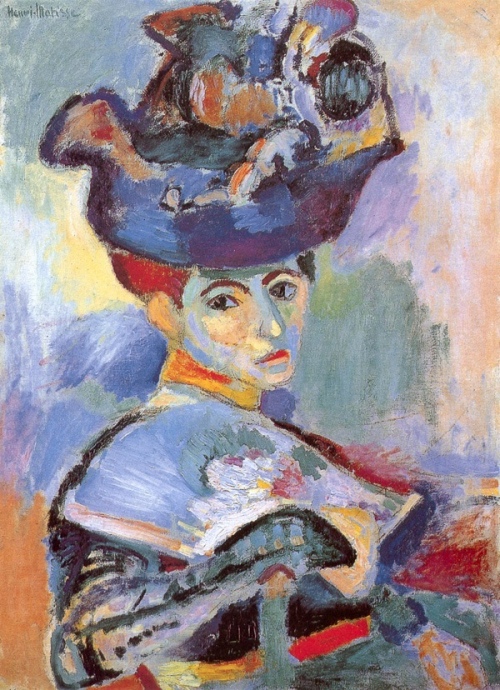The Unknown Matisse is the first of two volumes, taking our hero from 1869-1908. I actually bought it some time ago on Jee Leong‘s recommendation, but it has taken me some time to finish, mainly I think because the simple physical size of it makes it slightly awkward to read in bed. It’s not that huge, but it’s quite a fat volume and printed on large format paper to make space for some colour reproductions of the work. Which are, of course, lovely and very welcome.
It’s fascinating to read about the outrage that greeted paintings which now seem, if not tame exactly, at least uncontroversial. Indeed the first time he shocked the Parisian public, it was with a painting (The Dinner Table) that now looks positively conventional.* Over the past hundred years, outraging the public has become an explicit part of the job description for artists; but how much more satisfying to shock people not by placing a sculpture of Christ in a glass of urine, or exhibiting a work consisting of a room with the lights going on and off, but with a painting of a woman in a hat.

Not that Matisse seems to have been temperamentally inclined to shock people for its own sake. Some of the other modern artists obviously rather enjoyed the opportunity to wind up the public: André Derain came back from a visit to London with a classically tailored English suit made fauvist by the choice of a green fabric, with a red waistcoat and yellow shoes. Matisse, though, was more inclined to respectability: partially because unlike most of his contemporaries he had a young family, which meant he needed at least enough saleable work to keep them in food. But also because (through no fault of his own) he was caught up in the most magnificently baroque financial and political scandal I’ve ever heard of — really, it would merit a book by itself — which gave him enough experience of public notoriety to last a lifetime.
It’s a fine book, readable, evocative, well-researched. Or at least it gives the impression of being well-researched, which is as much as I have the expertise to judge.
* Although actually, in one of their periodic fits of cynical outrage about the Turner Prize, the Daily Mail held a ‘Not the Turner Prize’ competition, open to the public, and the work in that suggested that there are still plenty of people in Britain who feel that the highest aspiration of the painter should be photographic accuracy. Preferably of tigers. Or steam trains.